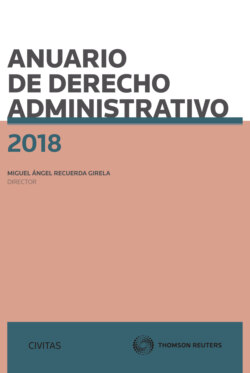Читать книгу Anuario de Derecho Administrativo 2018 - Miguel Ángel Recuerda Girela - Страница 48
На сайте Литреса книга снята с продажи.
I. RESUMEN
ОглавлениеPlataformas de intermediación como Cabify o Uber, irrumpen de forma inesperada en el sector del transporte discrecional de viajeros en vehículos de turismo, hasta convertirse en la principal fuente de conflictos para el taxi.
Materialmente, a través de la operativa que han configurado «ad hoc», prestan el mismo servicio que el de un taxi, pero utilizando un mecanismo de intermediación apenas regulado en nuestro país, por el cual hacen las veces de nexo de unión entre el solicitante del servicio de arrendamiento de vehículo con conductor y el prestador de dicho servicio.
En este último caso, además, se trata de empresas contratistas que encuentran acomodo legal en una regulación mucho menos exigente que la que se ha venido aplicando al tradicional sector del taxi (utilizan una tarifa fija, operan con unas licencias específicas (VTC), más económicas y más fáciles de obtener, disponen de una estructura fiscal que les resulta más beneficiosa...).
Las agrupaciones y asociaciones de taxistas, han acusado a las sociedades gestoras de tales plataformas y a su operativa, de incurrir en competencia desleal, haciéndose prevalecer en el mercado a través de una ventaja competitiva adquirida con infracción de las leyes.
Sin embargo, sobre dicho modo de operar, ha tenido oportunidad de pronunciarse el Tribunal Supremo, el Tribunal de Justicia Europeo, las Salas de lo Contencioso-Administrativo de diferentes Tribunales de Justicia Autonómicos, varios Juzgados de lo mercantil y organismos reguladores como la Comisión Nacional de los Mercados y la Competencia.
Por medio del presente trabajo, analizaremos muy de cerca tales posicionamientos administrativos y judiciales, así como la doctrina que al respecto se ha ido gestando. Ello nos permitirá conocer de primera mano, la forma de operar que tienen tales plataformas de intermediación, su naturaleza y entramado, la regulación que les ampara, si se ajustan o no a derecho y, por último, el futuro que se le augura a raíz de las últimas novedades legislativas y valoraciones jurisprudenciales.
Palabras clave: plataformas de intermediación, Cabify, Uber, VTC, licencias, transporte, competencia desleal, taxi, autorizaciones, arrendamiento, servicio.
ABSTRACT:
Intermediary platforms such as Cabify or Uber, have unexpectedly invaded the discretionary Transport Sector for travelers in passenger cars, and due to this have became a main threat to the Taxi Sector.
Mainly, through this operation they have configured «ad hoc», as they provide the same service as a Taxi, but using a mechanism of intermedity that has not been regulated in our country.
Whereby they serve as a link between the cliente who is to lease the service with the driver and the Service Provider.
In the latter case, these are contractors that find legal accommodation in a regulated sector that is much less demanding than the one that has been applied in the traditional taxi sector (they use a fixed rate, operate with specific licenses (VTC), are cheaper and easier to obtain, have a tax structure that is more beneficial to them...).
Groups and Associations of Taxi Drivers, have accused the Management Companies of such platforms and their operations, of incurring in unfair competition, making themselves prevail in the market through a competitive advantage acquired in violation of the laws. However, regarding this way of operating, the Supreme Court, the European Court of Justice, the Contentious-Administrative Chambers of different Autonomous Courts of Justice, several Commercial Courts and Regulatory Bodies such as the National Commission have had the opportunity to pronounce themselves.
Through this study, we will closely analyze such administrative and judicial positions, as well as the doctrine that has been developed in this regard. This will allow us to know firsthand the way in which such intermediation platforms have, their nature and structure, the regulation that protects them, whether they comply with the law and, finally, the future that is predicted as a result of the latest legislative developments and jurisprudential assessments.
Keywords: Intermediary platforms, Cabify, Uber, VTC, licenses, transportation, unfair competition, taxi, authorizations, lease, service.
